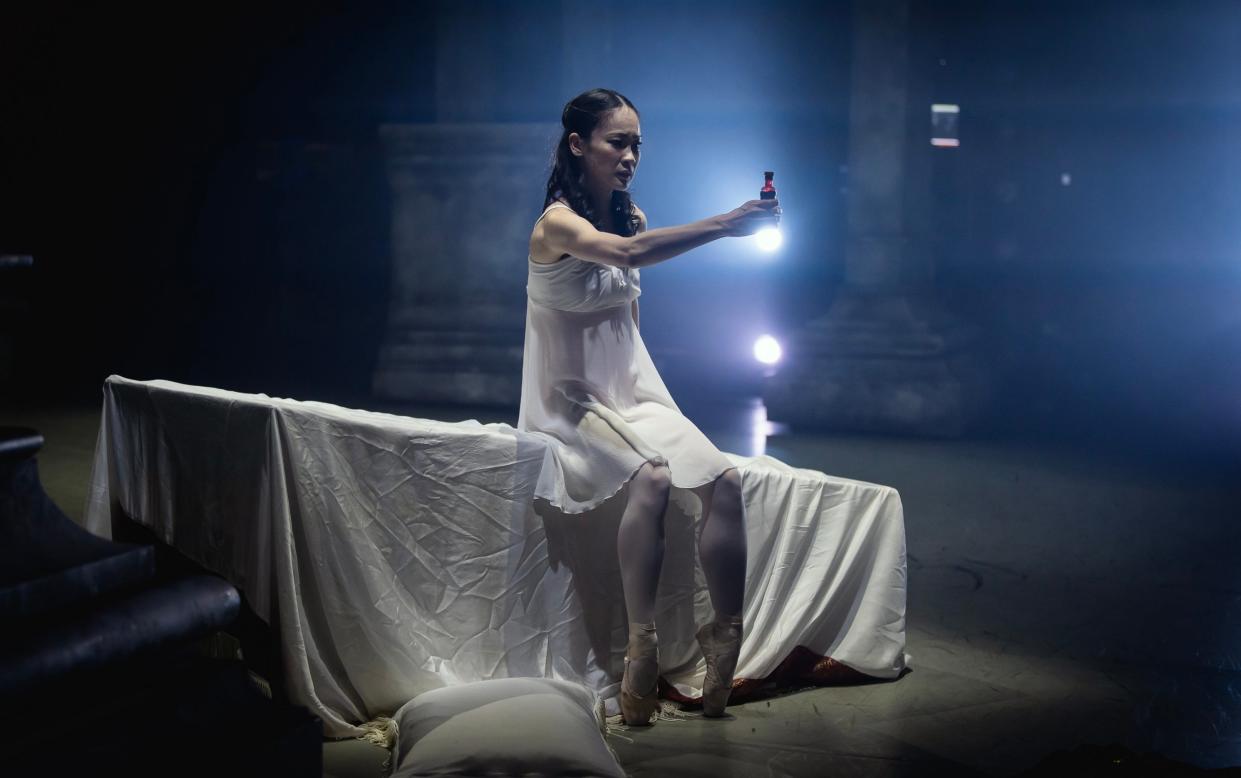Romeo and Juliet, Northern Ballet: A cracking revival, with a central couple you actually care about

- Oops!Something went wrong.Please try again later.
As at least one great Russian ballet company has previously found to its cost, bringing any staging of Prokofiev’s Romeo and Juliet to London – whose ballet-goers are used to the Royal Ballet’s drop-dead-magnificent 1965 Kenneth MacMillan/Nicholas Georgiadis production – is a little like putting a Ford Escort in for the Silverstone Grand Prix: hats off for chutzpah, but, as Sgt Wilson might have asked Captain Mainwaring, do you think that’s wise?
Given Northern Ballet’s modest size and resources compared with the Royal’s, then, I confess I feared the worst for its response to Prokofiev’s always astonishing score – but I needn’t have worried. In fact, this turns out to be a cracking revival of a remarkably full-blooded production, one that might have been tailor-made for the Sadler’s Wells stage (and indeed audience).
Devised in 1992 by former Royal Ballet star Christopher Gable (1940-1998) and choreographed by Massimo Morricone, its sets and costumes – by the ever-brilliant Lez Brotherston – were destroyed in the 2015 Boxing Day floods in Leeds. Now under another former Royal Ballet principal, Federico Bonelli, the company has painstakingly recreated the entire thing, and this is its first London run since then.
The production’s USP is to tell the famous story essentially straight, but also with dashes of inventiveness that might irk purists but should delight admirers of a Matthew Bourne – who, let’s not forget, also tends to collaborate with the mighty Brotherston. For example, much as Bourne, in his marvellous and long-belated 2019 staging, appropriated the famous martial Montagues and Capulets ballroom music for an entirely new prologue, so – 27 years ahead of him – this also ditches Prokofiev’s overture.
Before the action proper begins in the Verona marketplace, we instead witness – on Brotherston’s cannily distressed “marble” set, to flashes of lightning – Romeo and Juliet swept apart to opposite sides of the stage, as the orchestra plays the thunderous brass discord and gravely resolute strings that usually accompany the Duke breaking up the fighting further into Act I. It’s quite “pop” and not a little melodramatic, but as a scene-setter for this “tale of woe”, it has undeniable theatrical punch. As well as some bold re-splicing of the Act I ballroom music (shortly after the star-cross’d couple first meet), there are also two passages – the death of Mercutio, and Juliet’s final, all-too-short reawakening – that subtly but powerfully amplify the cruelty of both situations. I found myself extremely moved by both.
Much credit for this must also go to Wednesday’s cast, who delivered the steps and story as if their lives depended on it. Harris Beatie made a handsome Romeo, his upper-body lyrical and his acting hugely persuasive – a future company star if ever there was one. Together with Saeka Shirai as Juliet – inhabiting the role with heartbreaking conviction and reminding you that this ballet is above all Juliet’s – these two dancers (neither of them principals) drew you helplessly into the couple’s predicament and made you care deeply about their fate. Jun Ishi’s Mercutio was of a similarly high standard, his death scene horribly convincing; if there was a little ham elsewhere in the ranks, it mattered remarkably little.
Reluctantly, I have to dock a star for the Northern Ballet Sinfonia, whose playing on Wednesday – unevenly amplified – at times distractingly lacked the sure-footedness that this extraordinary music demands. But this is a pulse-quickeningly exciting and stirring production, and it’s touring high and low in England until late October. Whatever your previous experience of this story-in-dance, I promise you won’t be disappointed.
Until June 1, then touring until Oct 26; northernballet.com

